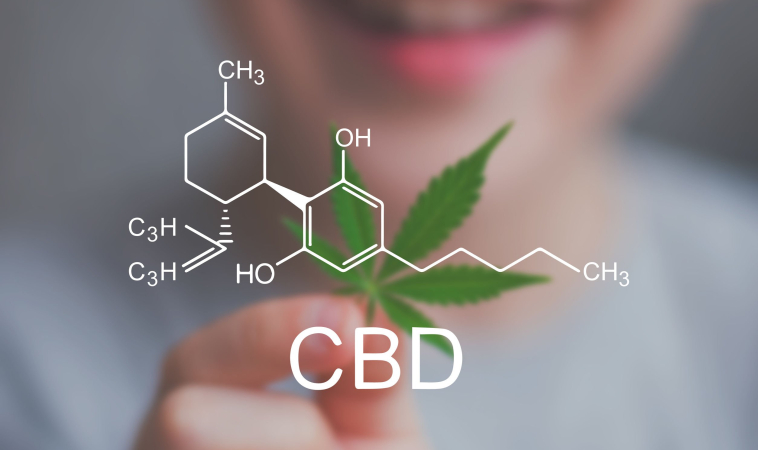Cannabidiol (CBD) reduced cue-induced craving and anxiety in individuals with a history of heroin abuse, suggesting a potential role for it in helping to break the cycle of addiction, according to research conducted at the Icahn School of Medicine at Mount Sinai and published May 21 in the American Journal of Psychiatry. The study also revealed that CBD tends to reduce physiological measures of stress reactivity, such as increased heart rate and cortisol levels, that are induced by drug cues.
Heroin and prescription opioid epidemic involves more than 300,000 deaths
The wide availability and use of heroin and prescription opioid medications in the United States during the past decade has resulted in an unprecedented epidemic involving more than 300,000 deaths. Despite this staggering toll, limited non-opioid medication options have been developed. Two of the current options, methadone and buprenorphine, are opioid substitution therapies which work on the same opioid receptors (mu receptors) as heroin and other potent opioid agonists. These medications, however, carry a stigma as well as their own addiction risk, mired in tight governmental regulation, and therefore are underutilized by the millions of people diagnosed with opioid use disorder. Such a treatment gap highlights the urgent need to develop novel therapeutic strategies that do not target the mu opioid receptor.
Dire need for new treatment options
“To address the critical need for new treatment options for the millions of people and families who are being devastated by this epidemic, we initiated a study to assess the potential of a non-intoxicating cannabinoid on craving and anxiety in heroin-addicted individuals,” says Yasmin Hurd, PhD, the Ward-Coleman Chair of Translational Neuroscience at the Icahn School of Medicine at Mount Sinai, Director of the Addiction Institute at Mount Sinai and first author of the study. “The specific effects of CBD on cue-induced drug craving and anxiety are particularly important in the development of addiction therapeutics because environmental cues are one of the strongest triggers for relapse and continued drug use.”
Previous preclinical work revealed the following
Previous preclinical work conducted by Dr. Hurd and her lab team at Mount Sinai, in animals with a history of heroin self-administration, demonstrated that CBD reduced the animals’ tendency to use heroin in response to a drug-associated cue. To determine whether the preclinical work could be translated to humans, her lab then conducted a series of clinical studies that demonstrated CBD was safe and tolerable in humans.
Current CBD study
The current study used a double-blind, randomized, placebo-controlled design to explore the acute (one hour, two hours, and 24 hours), short-term (three consecutive days), and protracted (seven days after the last of three consecutive daily administrations) effects of CBD administration on drug cue-induced craving and anxiety in drug-abstinent individuals with heroin use disorder. Secondary measures assessed participants’ positive and negative affect, cognition, and physiological status.
Through the study, 42 drug-abstinent men and women were randomly assigned to receive either 400 mg or 800 mg of an oral CBD solution or a matching placebo. Participants were then exposed to neutral and drug-related cues during the course of three sessions: immediately following administration, 24 hours after CBD or placebo administration, and seven days after the third and final daily CBD or placebo administration. Neutral cues consisted of a three-minute video showing relaxing scenarios, such as scenes of nature, while drug-related cues included a three-minute video showing intravenous or intranasal drug use and exposure to heroin-related paraphernalia like syringes, rubber ties, and packets of powder resembling heroin. Measures of opioid craving, anxiety, positive and negative affect, and vital signs (skin temperature, blood pressure, heart rate, respiratory rate, and oxygen saturation) were obtained at different times during the sessions.
Study team’s findings
The study team found that CBD, in contrast to placebo, significantly reduced both the craving and anxiety induced by drug cues compared with neutral cues in the acute term. CBD also showed significant protracted effects on these measures seven days after the final short-term exposure. In addition, CBD reduced the drug cue-induced physiological measures of heart rate and salivary cortisol levels. There were no significant effects on cognition, and there were no serious adverse events. The capacity of CBD to reduce cravings and anxiety one week after the final administration mirrors the results of the original preclinical animal study, suggesting that the effects of CBD are long-lasting, even when the cannabinoid would not be expected to be present in the body.
‘CBD holds significant promise for treating individuals with heroin use disorder’
“Our findings indicate that CBD holds significant promise for treating individuals with heroin use disorder,” says Dr. Hurd. “A successful non-opioid medication would add significantly to the existing addiction medication toolbox to help reduce the growing death toll, enormous health care costs, and treatment limitations imposed by stringent government regulations amid this persistent opioid epidemic.”
Research team is working on two follow-up studies
Dr. Hurd’s research team is working on two follow-up studies: one delves into understanding the mechanisms of CBD’s effects on the brain; the second paves the way for the development of unique CBD medicinal formulations that are likely to become a significant part of the medical arsenal available to address the opioid epidemic.
From Mount Sinai School of Medicine
 Razi Berry is the founder and publisher of the journal Naturopathic Doctor News & Review, which has been in print since 2005, and the premier consumer-faced website of naturopathic medicine, NaturalPath. She is the host of The Natural Cancer Prevention Summit and The Heart Revolution-Heal, Empower and Follow Your Heart, and the popular 10 week Sugar Free Summer program. From a near death experience as a young girl that healed her failing heart, to later overcoming infertility and Chronic Fatigue Syndrome and Fibromyalgia through naturopathic medicine, Razi has lived the mind/body healing paradigm. Her projects uniquely capture the tradition and philosophy of naturopathy: The healing power of nature, the vital life force in every living thing and the undeniable role that science and mind/body medicine have in creating health and overcoming dis-ease. Follow Razi on Facebook at Razi Berry and join us at Love is Medicine to explore the convergence of love and health.
Razi Berry is the founder and publisher of the journal Naturopathic Doctor News & Review, which has been in print since 2005, and the premier consumer-faced website of naturopathic medicine, NaturalPath. She is the host of The Natural Cancer Prevention Summit and The Heart Revolution-Heal, Empower and Follow Your Heart, and the popular 10 week Sugar Free Summer program. From a near death experience as a young girl that healed her failing heart, to later overcoming infertility and Chronic Fatigue Syndrome and Fibromyalgia through naturopathic medicine, Razi has lived the mind/body healing paradigm. Her projects uniquely capture the tradition and philosophy of naturopathy: The healing power of nature, the vital life force in every living thing and the undeniable role that science and mind/body medicine have in creating health and overcoming dis-ease. Follow Razi on Facebook at Razi Berry and join us at Love is Medicine to explore the convergence of love and health.

















